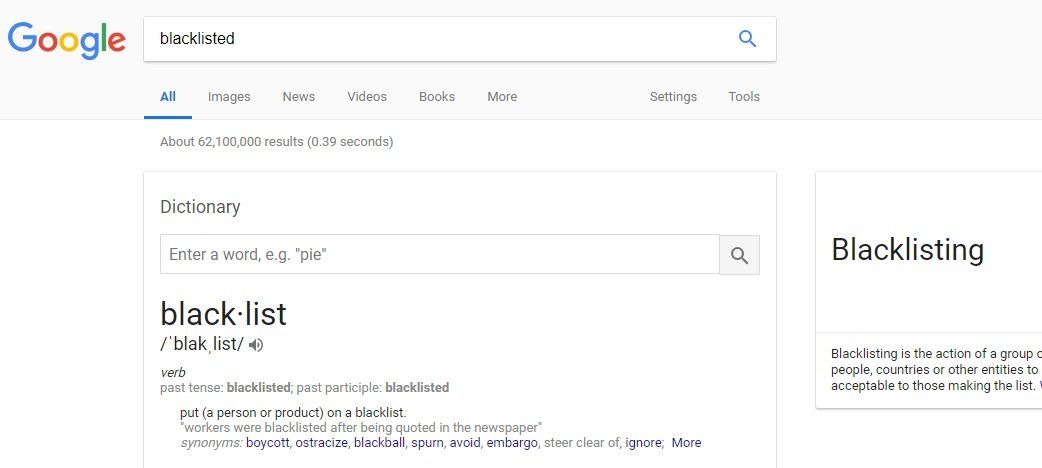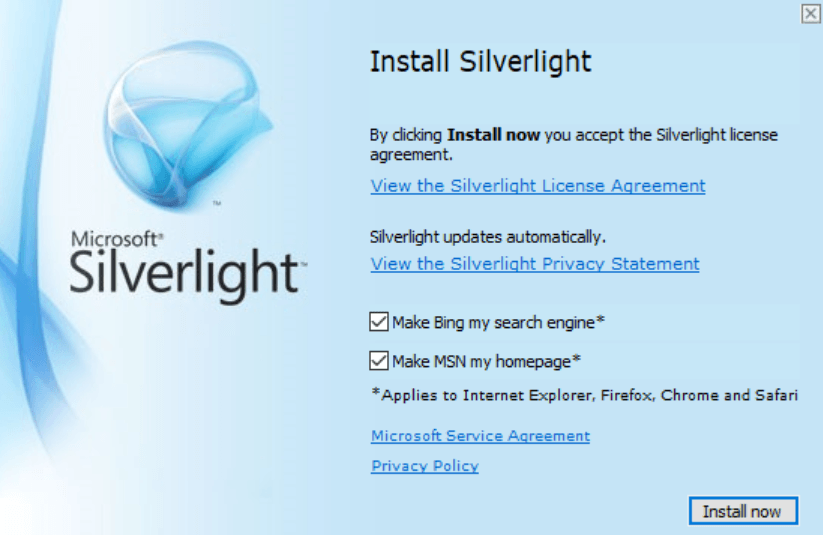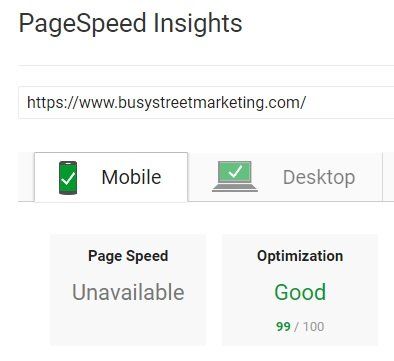SEO Tactics to Avoid Penalization in Your Website SEO Strategy
- By info@busystreetmarketing.com
- •
- 05 Jul, 2018
- •
Tactics that will harm your website pagerank, or even get blacklisted
When building your website, it's important to avoid certain SEO tactics deemed by Google to be a manipulation of website data with the intent of misleading their algorithm into falsely raising the rank of a less than ideal web page. I'm not suggesting that any of my readers would purposely employ any of these tactics. However, it is good to be aware so that you do not violate Google's rules and end up inadvertently lowering your pagerank or even getting your website blacklisted altogether.

Google's Guidelines for Favorable Website SEO
The world's largest search engine, Google states that their mission is to "universally organize the world's info in such a way that it is accessible and useful." As such, Google constantly evaluates websites looking for black hat SEO tactics that have been applied in an effort to manipulate Google's pagerank algorithm. Whenever a black hat tactic is noticed and it becomes clear that some webmaster is participating in a deceptive scheme to try and game the system, Google will take manual action to block your website, or portions of it which violate their published webmaster guidelines.
Though Google's guidelines are constantly changing, this is a current list of some of the tactics that SEOs have recognized as warranting penalization by Google. Penalization could negatively impact your website's search ranking or even get your site completely blocked from appearing in Google SERPs (search engine results page):
Though Google's guidelines are constantly changing, this is a current list of some of the tactics that SEOs have recognized as warranting penalization by Google. Penalization could negatively impact your website's search ranking or even get your site completely blocked from appearing in Google SERPs (search engine results page):
Avoid the Use of Unnatural Backlinks
Backlinks are still one of the most important pagerank factors for SEO, and when used correctly can have a tremendous impact on your website showing up when people search. However Google is cracking down on unnatural use of links which don't provide value to readers, or seem to be an attempt to unnaturally manipulate pagerank. Unnatural backlinks can take the form of lists of backlinks without context, or using the same backlink many times within even natural text. Just remember that Google still uses backlinks as a ranking factor in search, but only use links in a way that is useful to the user, and make sure anchor text accurately represents the destination page.
Avoid Using Spam Comments to plant backlinks
Spam comments are when you comment on a blog post on someone else's site for the sole purpose of adding a backlink to your own website. This falls into the category of unnatural links. Blog comments are meant to be a place where natural discussion about the blog topic can occur, but if all you say is: "Wow. That was great. Check out: http://mywebsite.com"; Google will see that as an unnatural link in the context of the discussion and the time you spent will actually result in lowering your pagerank rather than raising it.
Avoid Duplicate Content on Your Web Pages
It seems obvious, once you consider Google's goals for it's search engine results pages: "to organize the world's information, making it accessible and useful." Duplicating the same content over and over is hardly useful to any consumer of information, unless you happen to be the deranged man named Jack in the Stephen King novel "The Shining."
In some cases, duplicate content is created without manipulative intent, such as having two copies of a page, one formatted for reading and another formatted for printing. For the most part, this type of duplication is recognized by Google as innocent and wont hurt search rankings. If you find however that your site has been removed from Google's SERPs, and you feel they have done so erroneously, you can submit your site for reconsideration to reverse any penalization of your web page by Google.
In some cases, duplicate content is created without manipulative intent, such as having two copies of a page, one formatted for reading and another formatted for printing. For the most part, this type of duplication is recognized by Google as innocent and wont hurt search rankings. If you find however that your site has been removed from Google's SERPs, and you feel they have done so erroneously, you can submit your site for reconsideration to reverse any penalization of your web page by Google.
Avoid Adding Unrelated or Irrelevant Keywords to Your Website
This is the practice of inserting keywords on a page that is talking about a whole different subject in an effort to gain higher pagerank. Again, if you consider the primary objective Google has for their search engine, it is clear this is of no value whatsoever to the person searching. Keywords crawled as part of the natural prose of an article by contrast, will provide value to the searcher and be rewarded a higher ranking in Google's SERPs.
Avoid Web Page Cloaking as an SEO Tactic
SEO cloaking is a tactic where a website presents one set of page content to search engines, while presenting a whole different set of content to users. This is done by running a script on a website that is scanning for the presence of the user-agent tag in the HTTP header of the http request, which allows the website to select which set of content is returned in response to the request.
There are legitimate uses for cloaking, such as if the user version of the page contains helpful content that is non-recognizable by search engines because of it's non-textual nature, such as Adobe Flash animations or videos. Google's algorithm is able to distinguish legitimate use of cloaking and allows legitimate use of cloaking, as witnessed by the many website's that employ this function to serve up content based on user actions, for example.
Akin to this is the use of doorway or gateway pages. This is a page that contains all the right data for SEO, but when a user clicks to visit that page, it redirects to a different page designed for users.
There are legitimate uses for cloaking, such as if the user version of the page contains helpful content that is non-recognizable by search engines because of it's non-textual nature, such as Adobe Flash animations or videos. Google's algorithm is able to distinguish legitimate use of cloaking and allows legitimate use of cloaking, as witnessed by the many website's that employ this function to serve up content based on user actions, for example.
Akin to this is the use of doorway or gateway pages. This is a page that contains all the right data for SEO, but when a user clicks to visit that page, it redirects to a different page designed for users.
Avoid Spamming Social Media for SEO Purposes
Social network activity is monitored by Google as a measure of user interaction with your website. Social networking spam, which takes many forms aims at raising search rank by faking a strong social network and lots of activity in an effort to dupe Google's algorithm into detecting strong social signals toward your website. Buying fake followers, creating fake accounts, fake likes and shares of posts, writing fake reviews are all black hat SEO tactics used by unethical SEOs. Thankfully, the same algorithm that is used to crawl for social signals is now updated to detect slimy black hat social networking SEO tactics.
If you are going to use social media to promote your website, remember Google's mission: to organize the world's info and make it useful to users.
If you are going to use social media to promote your website, remember Google's mission: to organize the world's info and make it useful to users.
Avoid Keyword Stuffing in an Effort to Raise Search Rankings
Similar to duplicate content, using the same keywords excessively, even within normal sentence structure, will be seen as a violation of Google's best practices. For example: "Gucci purses and handbags are the perfect gift for lovers of Gucci purses. Lot's of women who recieve Gucci purses, rave about the quality of Gucci purses, insisting that there's no other purse like a Gucci purse."
Again, it's fairly obvious that keyword stuffing is not a useful form of web content for the person searching, and therefore, subject to removal from Google's SERPs.
Again, it's fairly obvious that keyword stuffing is not a useful form of web content for the person searching, and therefore, subject to removal from Google's SERPs.
Avoid Using Invisible Text as an SEO Tactic
Also known as hidden text, is one of the oldest black hat SEO tactics, based on the early days (2005ish) when pagerank was heavily weighted by keyword density. In other words, the more often a keyword was detected by the search engine, the higher it would rank in SERPs. Several means have been attempted for this, such as making the page background color and text color the same color, or manipulating the web page's CSS code (Cascading Style Sheet) to position the text outside the web page's viewable window.
Google's webmaster guidelines never even mention keyword density anymore, suggesting instead that webmasters concentrate on writing copy that is useful to users. It is suggested that the chosen keyword for a page should appear in the page's URL, in the title tag, and perhaps in one header (H1 tag) and once in the text are under that header. Beyond that, care should be taken to limit the use of the same keyword, and never use it out of context throughout the page.
The good news is that Google's algorithms are smart enough to pick up on alternate wording that mean the same thing and other factors that are indicators that you are talking about the thing you are trying to raise your search ranking for, so long as the web content meets their other guidelines for SEO strategy.
Google's webmaster guidelines never even mention keyword density anymore, suggesting instead that webmasters concentrate on writing copy that is useful to users. It is suggested that the chosen keyword for a page should appear in the page's URL, in the title tag, and perhaps in one header (H1 tag) and once in the text are under that header. Beyond that, care should be taken to limit the use of the same keyword, and never use it out of context throughout the page.
The good news is that Google's algorithms are smart enough to pick up on alternate wording that mean the same thing and other factors that are indicators that you are talking about the thing you are trying to raise your search ranking for, so long as the web content meets their other guidelines for SEO strategy.
Avoid Article Spinning for SEO Purposes
Some SEOs use software that generates multiple articles from the same content, which saves them from having to write new, unique articles every time. Unfortunately for these unethical SEOs, Google's pagerank algorithm is intelligent enough to detect this hack and if deemed to be a deliberate effort to skirt the rules, will penalize the pagerank, or even block the website entirely.
Compliance with Google's Webmaster Guidelines for SEO
What seems obvious is that if you attempt to manipulate Google's search algorithms, you are likely to get caught, and it could result in losing any ground you may have gained with your black hat SEO tactics. What is more difficult to understand is why anyone would bother to take all the time and energy to try and game the system, since if they applied all that effort toward writing great websites, they would be assured better results, with no danger of losing all their hard work to penalization.
Google makes their guidelines public for all to see and edits it every time their search algorithm undergoes a major update. I would encourage anyone who is a webmaster to read exactly how to publish websites that will rank higher on Google at: http://www.google.com/webmasters/guidelines.html.
Google makes their guidelines public for all to see and edits it every time their search algorithm undergoes a major update. I would encourage anyone who is a webmaster to read exactly how to publish websites that will rank higher on Google at: http://www.google.com/webmasters/guidelines.html.

In my work, I often get asked questions that have nothing to do with marketing. At first, I was going to say that this was one of those questions, but technically, it does: "How did I get Bing on my computer?" It's software that's so useless, they can't even market it. No one would actually search for it and intentionally use it. It's so bad, they can't even give it away. Overlookware is software that is so lousy, they have to sneak it past you while you're trying to install something useful of theirs. They are hoping you don't notice or that you are too lazy to remove it.







